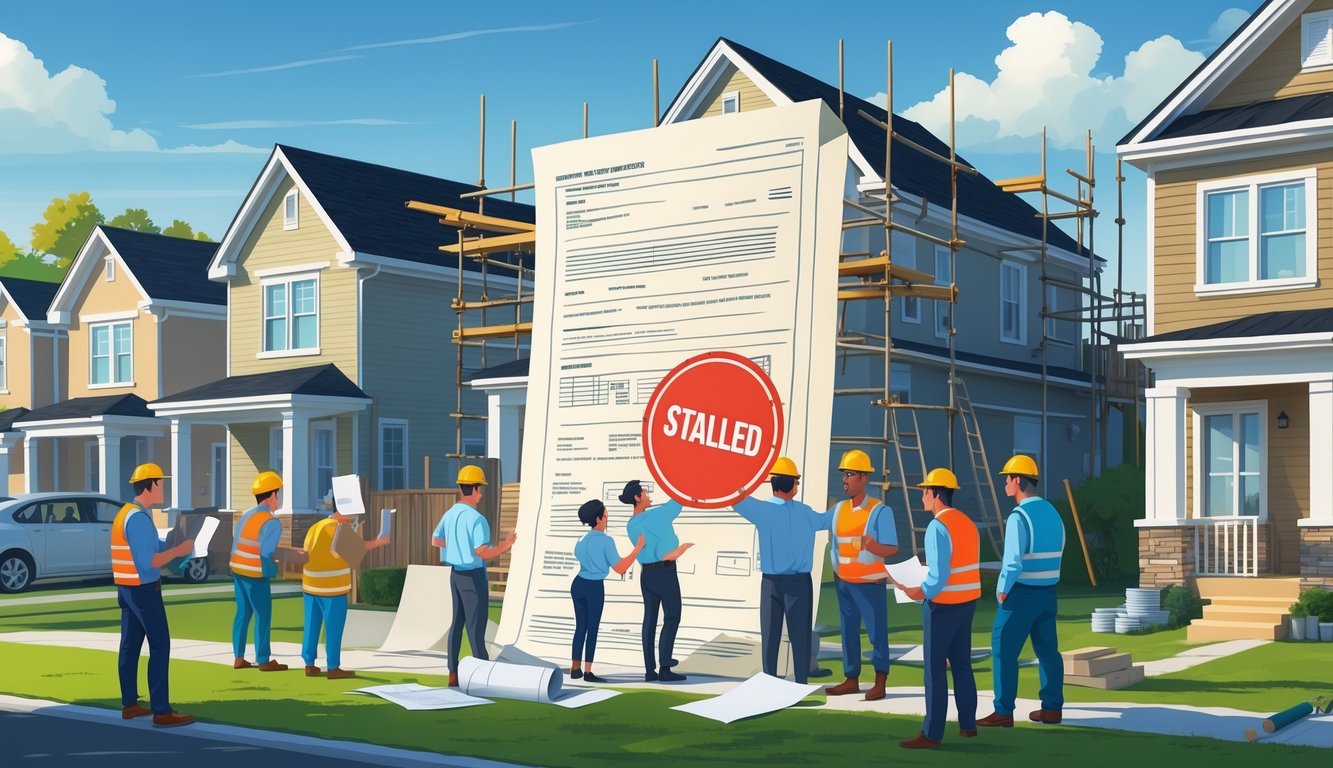
Buying and Selling a Home With Permit Issues
Half the time, I’m drowning in paperwork before I even realize how much a missing permit can screw things up—delays, frantic agent calls, or the crushing sigh when another deal dies over a technicality. Buyers and sellers both end up juggling way more than open house flyers; these hidden permit nightmares trip up everyone, whether you’re listing or trying to make an offer.
Disclosure Obligations for Sellers
Look, if I had a dollar for every seller who thinks ignoring permit paperwork makes it disappear, I’d have… well, probably enough to pay off my own city fines. Why do people think skipping forms is some kind of invisibility cloak? Spoiler: it isn’t. If you’re the seller, you have to spill the beans about any permit mess—unpermitted rooms, half-finished nonsense, whatever—or you’re just begging for a legal mess later. I mean, not mentioning that DIY sunroom? That’s a lawsuit magnet, and you’ll deserve the migraine.
My real estate attorney (who I basically keep on speed dial) keeps telling me most post-sale lawsuits are because of hidden work, not termites or cracked foundations. Move Places in the UK even says it outright: skipped permits don’t vanish, and buyers want honesty. I’ve watched deals crash and burn during final walkthroughs, all because someone “forgot” to mention a sketchy addition. Super awkward, every single time.
Buyers’ Risks and the Title Search
Honestly, is the title search there to help or just to crush souls? I’ve seen buyers get blindsided—one minute you think you’ve got your dream place, next minute the title search finds some unpermitted garage and your lender nopes out. Title insurance? Sometimes it doesn’t even touch unpermitted work. Banks hate surprises, and surveyors? Don’t get me started.
People trust their solicitor or agent to catch everything, but that’s wishful thinking. It’s way too easy to miss that “oh, by the way” kitchen extension. And when buyers finally realize the backyard shed never had a permit, that’s when the bills start piling up. GOV.UK’s planning guidance basically says unpermitted work can stall a sale for weeks—or months. Try explaining that to someone who’s already packed their moving boxes. Fun times.
Negotiating ‘Sell As-Is’ Home Sales
Every week, someone asks me if they can just slap an “as-is” label on their house and call it a day. Sure, you can try, but buyers will use every missing permit to whittle down your price. Get ready for lowball offers, last-minute freakouts, and bank drama. Open Property Group might buy “as-is” homes, but let’s not pretend you’re getting top dollar.
Some sellers think “as-is” means nobody cares about paperwork. Nope. Cash buyers and investors send their own inspectors and will bail if they smell trouble. I’ve seen buyers walk away even when the listing screams “AS-IS.” And if you think your agent listing it that way protects you from legal blowback if you “forget” that sketchy bathroom addition? Good luck with that.
Financial Impacts of Permit Complications
I swear, you start a “simple” reno and suddenly your budget’s a joke. Where’d that extra $1,400 go? Oh, right—permits. Waiting for paperwork, projects on hold, lenders breathing down your neck, and your home value just floating around in limbo. Every delay, I get a little closer to losing it.
Financing Challenges
Here’s the worst part: every extra week means more loan interest, and my bank officer’s “friendly reminders” are getting less friendly. Permitting delays? They’re like a black hole for your budget. Project management turns into chaos—every time the city wants a “minor” revision, my whole crew gets rescheduled. Supposedly, the average new build gets hit with about 0.6% extra cost—so, $1,400, according to Frontline Advisory Group. That’s if you’re lucky.
And that’s not even the weird stuff: insurance premiums go up, utilities stay on because you can’t close out the job, subcontractors charge you for sitting around. I know a guy who lost his entire profit margin on a remodel—three weeks waiting for “clarification” from the permit office. Apparently, silence means progress? I don’t buy it. Permitting messes eat time, money, and patience. No warning, just gone.
Lender Requirements
Lenders, man. Their rules change every time the wind blows. Permit delay? Suddenly the underwriter wants a new appraisal because “market conditions shifted.” Sometimes they order extra inspections, as if I snuck in a secret room while nobody was watching.
Want an example? Last year, a basic addition got flagged for extra paperwork halfway through. The lender froze funds until they got another sign-off. Builders end up scrambling for bridge loans or paying out of pocket just to keep the job moving. Every regulatory hiccup means higher loan costs and shrinking profits, and even when builders complain to Congress, nothing changes fast enough. If you ask your lender how late a permit can be before they jack up your rate, don’t hold your breath for a straight answer.